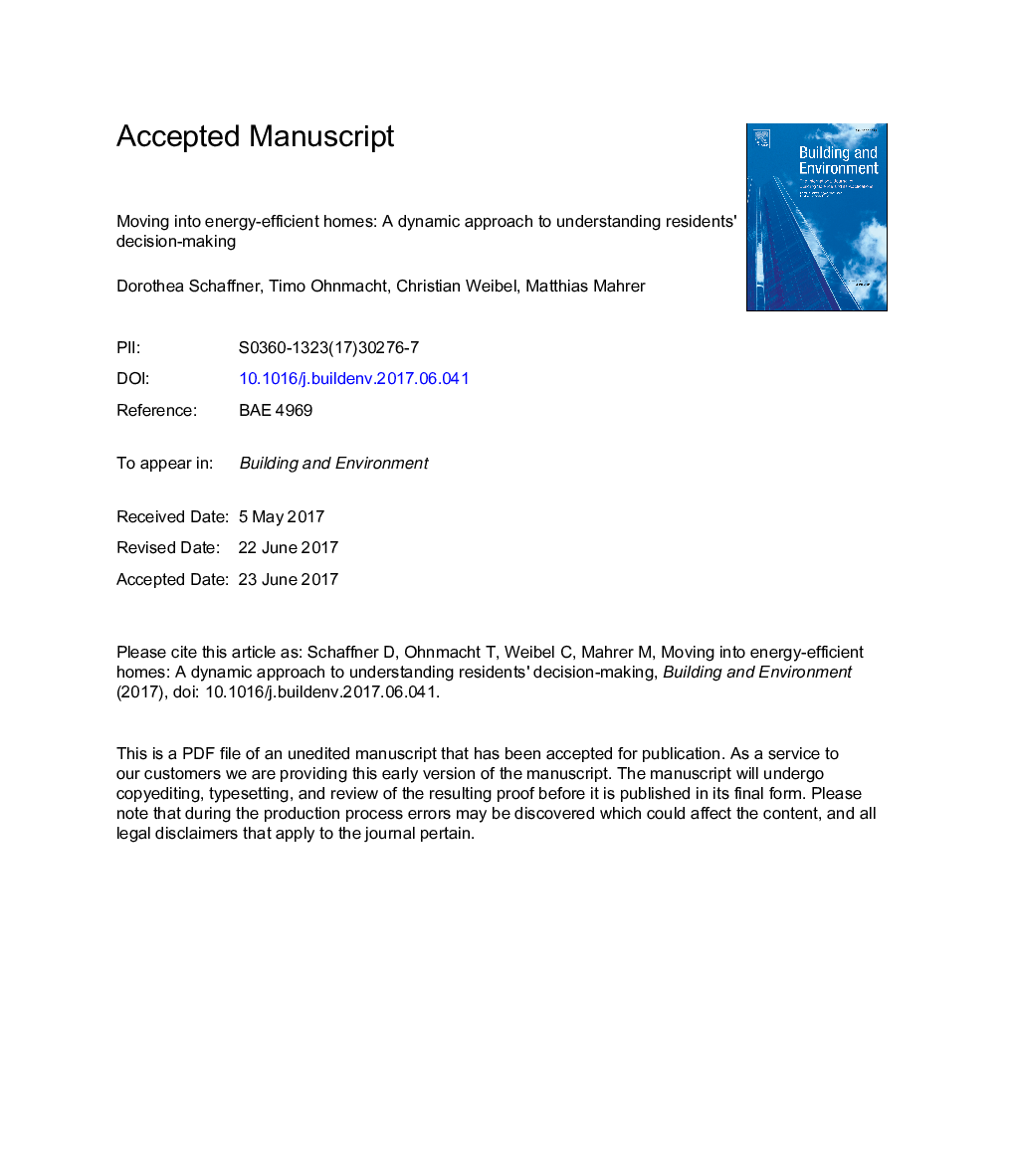| Article ID | Journal | Published Year | Pages | File Type |
|---|---|---|---|---|
| 4917258 | Building and Environment | 2017 | 40 Pages |
Abstract
This article proposes a dynamic approach to understanding decisions to move into energy-efficient homes by integrating existing theories of behaviour change into a phase model. Quantitative survey data from a study of a medium-sized city in Switzerland (n = 1295) supports the proposition that behavioural intentions to move into energy-efficient homes are influenced by different social-psychological factors depending on the phase an individual has reached in the process of behaviour change (predecision, preaction, action). While social norms and emotions tend to influence intentions in the first two phases, attitudes and personal norms only have an effect in the second phase. The most important factor for all phases is perceived behaviour control. The conclusions drawn from this study will contribute to an increased understanding of the effectiveness of interventions, marketing strategies and communication campaigns, and thus support public authorities, policymakers and marketers in the real-estate sector, promoting energy-efficient buildings.
Keywords
Related Topics
Physical Sciences and Engineering
Energy
Renewable Energy, Sustainability and the Environment
Authors
Dorothea Schaffner, Timo Ohnmacht, Christian Weibel, Matthias Mahrer,
